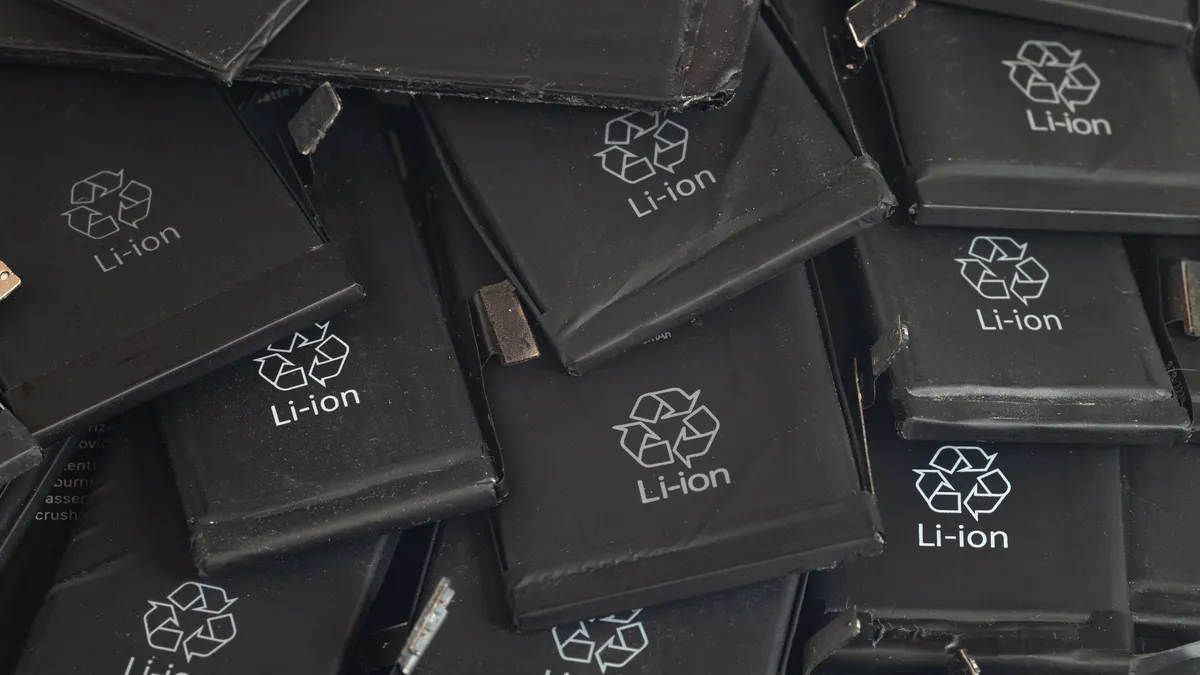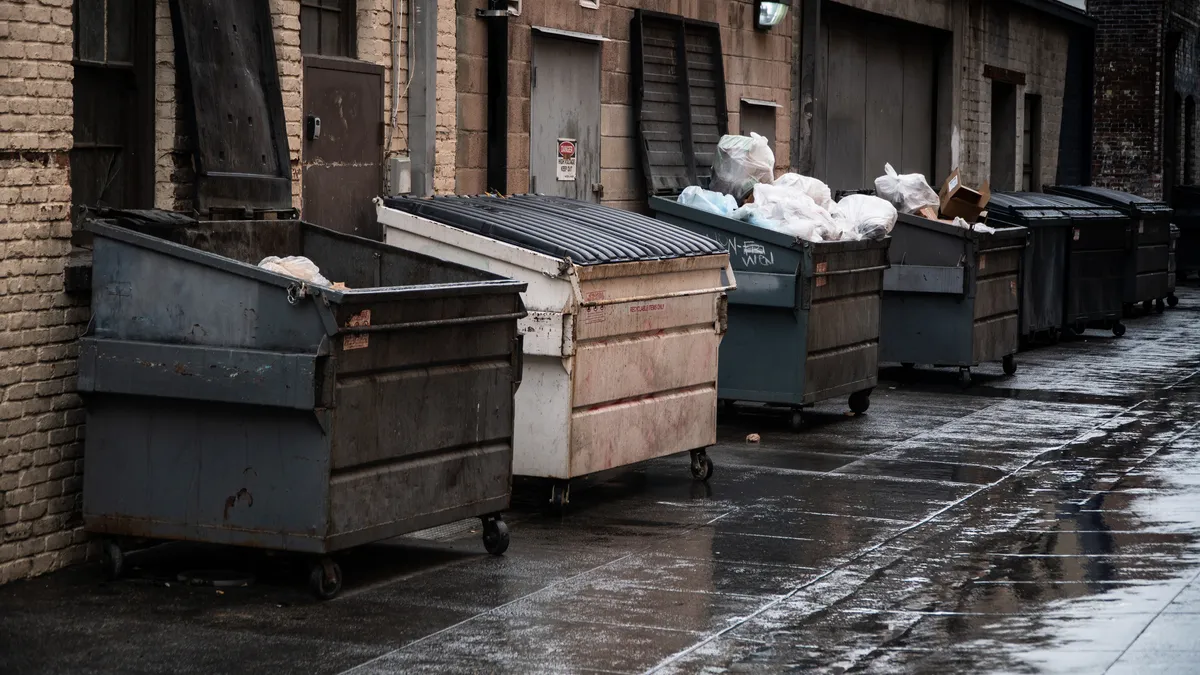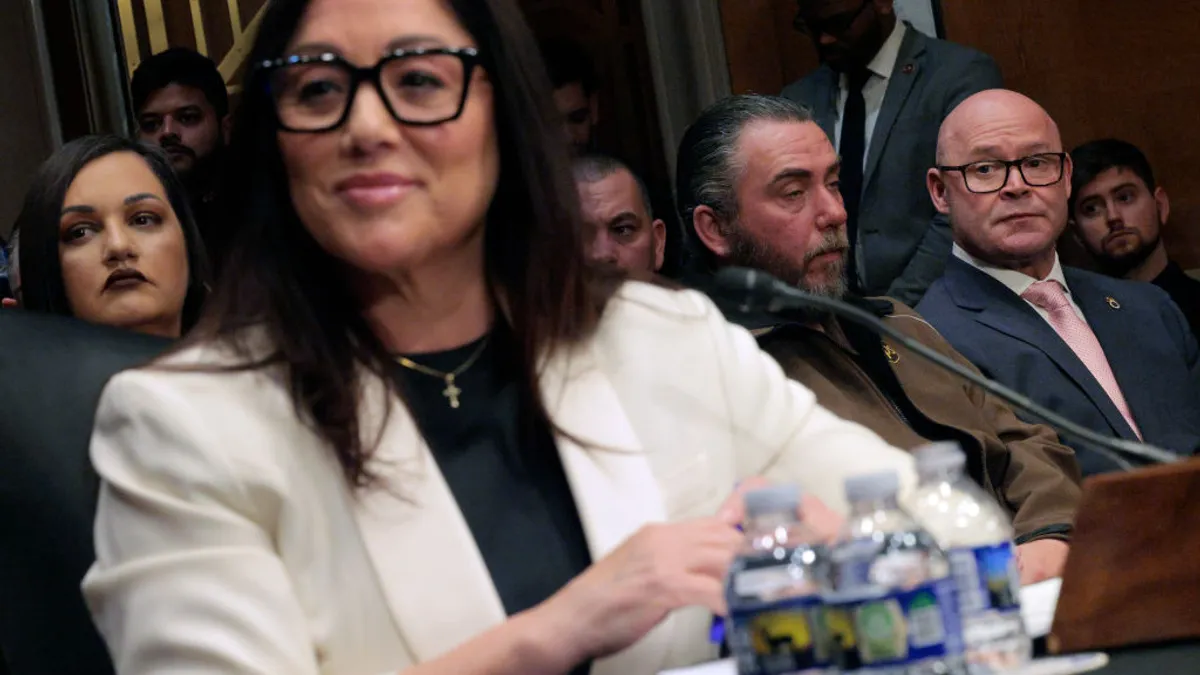As more electronics enter the waste stream each year, recycling and reuse need more funding and better infrastructure to better capture critical materials and create jobs, industry experts discussed at a Senate hearing last week.
During the Senate Environment and Public Works committee hearing, panelists representing electronics recyclers and municipal and nonprofit organizations testified on the important impact electronics recycling and reuse can have on the U.S. economy and environment.
Major challenges, such as lack of access and limited recycling education, are keeping people from efficiently recycling their old devices, said ranking member Sen. Shelley Moore Capito, R-W. Va. When residents don’t have convenient options for recycling old electronics, “that often limits electronic waste disposal to only the most engaged people willing to visit a dump or a drop-off facility.”
Better recycling systems can also help the U.S. improve its recovery of critical minerals needed to make new devices, speakers said. Some lawmakers see mineral recovery as an economic priority, as some countries currently corner the market on certain minerals commonly used in electronics production. “China's recently threatened to curb exports of critical minerals abroad, and that makes the dim reality of its dominance in rare earth mineral extraction perfectly clear,” Capito said in her opening remarks.
Investments in all types of electronics recycling initiatives — from major facility upgrades to small investments in mom-and-pop and nonprofit operations — are needed to redirect electronics from landfills and into more useful purposes, speakers added. Some speakers advocated for robust right-to-repair laws to help extend the life of electronics, while others recommended extended producer responsibility laws to help stabilize local funding for recycling programs and international advocacy to maintain important trade relationships for refurbished devices.
“We now have an opportunity to improve e-waste recycling, and I believe we are,” said committee chair Sen. Tom Carper, D-Del., in his opening remarks, adding that when businesses, environmental groups and government agencies “join forces to address our environmental challenges, we all benefit.”
Here’s a snapshot of the major issues speakers advocated for during the hearing:
Battery recycling investments
The U.S. has recently invested in electronics recycling projects, particularly battery recycling, through funding in the 2021 infrastructure law and the Inflation Reduction Act to develop battery recycling technology and best practices.
Ajay Kochhar, CEO and co-founder ofCanadian company Li-Cycle, also touted his company’s recent $375 million loan from the U.S. Department of Energy to finance the construction of a new battery recycling facility in Rochester, New York. Once complete, it will be one of the largest sources of lithium in the U.S., he said.
Major U.S. investment in battery recycling “reduces our dependence on unstable foreign supply chains and supports a completely localized battery industry to create made-in-America batteries,” Kochhar said. The facility project is expected to create 1,000 jobs during construction and about 270 permanent jobs once in operation, he said.
Upcoming trade law changes
As the U.S. works to make its domestic mineral supply chains more sustainable, recyclers and refurbishers are also asking lawmakers for help preserving international trade relationships.
An upcoming change to the Basel Convention, starting on Jan. 1, 2025, will recategorize some types of electronics as hazardous waste and will restrict trade from countries not party to the convention, such as the United States.
U.S. recyclers who sell refurbished items and some e-scrap internationally could be limited to trading with countries it already has bilateral agreements with, like Canada, said Craig Boswell, president and co-founder of HOBI International, an electronics refurbisher and recycler. “This is a looming issue because the global market for electronics is what we depend on, and this will isolate electronics recyclers in the U.S. from the remainder of the global market,” he said.
Supporting small mom-and-pop recycling operations is also important to local economies, he added. Recyclers and refurbishers who have the ability to be certified by a third party can build trust in a community and encourage more people to responsibly recycle their devices without fear of their personal information leaking, he said.
Local government’s role
Local jurisdictions have an important role to play in improving electronics recycling, but municipalities need help, said Kitty McIlroy, a project manager for electronics recycling contracts at the Northeast Maryland Waste Disposal Authority and president of the Maryland Recycling Network. “There’s a vast network of underutilized collection sites in the country right now. Local governments are collecting the majority of municipal electronic waste, and if they don't have the local budget to support it, it's going to end up in their landfill.”
Municipalities in Maryland typically fund electronics takeback programs through a combination of funding sources like local taxes, tipping fees or enterprise funds, but “over the past decade, many of these programs have closed, or at least partially, due to a lack of funding.”
McIlroy called for a national congressional workgroup with stakeholders like recyclers, government officials, producers and government officials to create nationwide best practices that can prevent more locally run programs from going under. She also advocated for extended producer responsibility models to shift costs away from cash-strapped localities.
Reuse and refurbish priorities
Speakers also stressed the economic and environmental importance of reusing and refurbishing old electronics. For Boswell, the value of refurbishing and reselling an iPhone could be “20, 30, sometimes 100 times more as a reusable product than a product for material recovery,” he said. “The economics of reuse support much of what we do.”
Nonprofit refurbisher Human-I-T collects, refurbishes and distributes computers for students, seniors and families. The nonprofit also trains workers on refurbishing skills designed to serve as a knowledge base for becoming qualified for numerous IT and tech jobs. “Our model promotes reuse over recycling,” said Charles Pellicane, executive vice president of business development and operations. But there are refurbishing roadblocks — mainly the lack of right-to-repair legislation allowing refurbishers access to parts and instructions, he said.
Right-to-repair laws recently passed in New York and Minnesota , but there’s more to go, he said. “No single e-waste refurbisher or recycler can achieve significant market share due to a patchwork of state and local policies,” he said, adding that streamlined EPR policies can also help.
“We need to be making devices more easily refurbish trouble in general, and ensuring that any right to repair legislation includes nonprofit organizations as well.”























